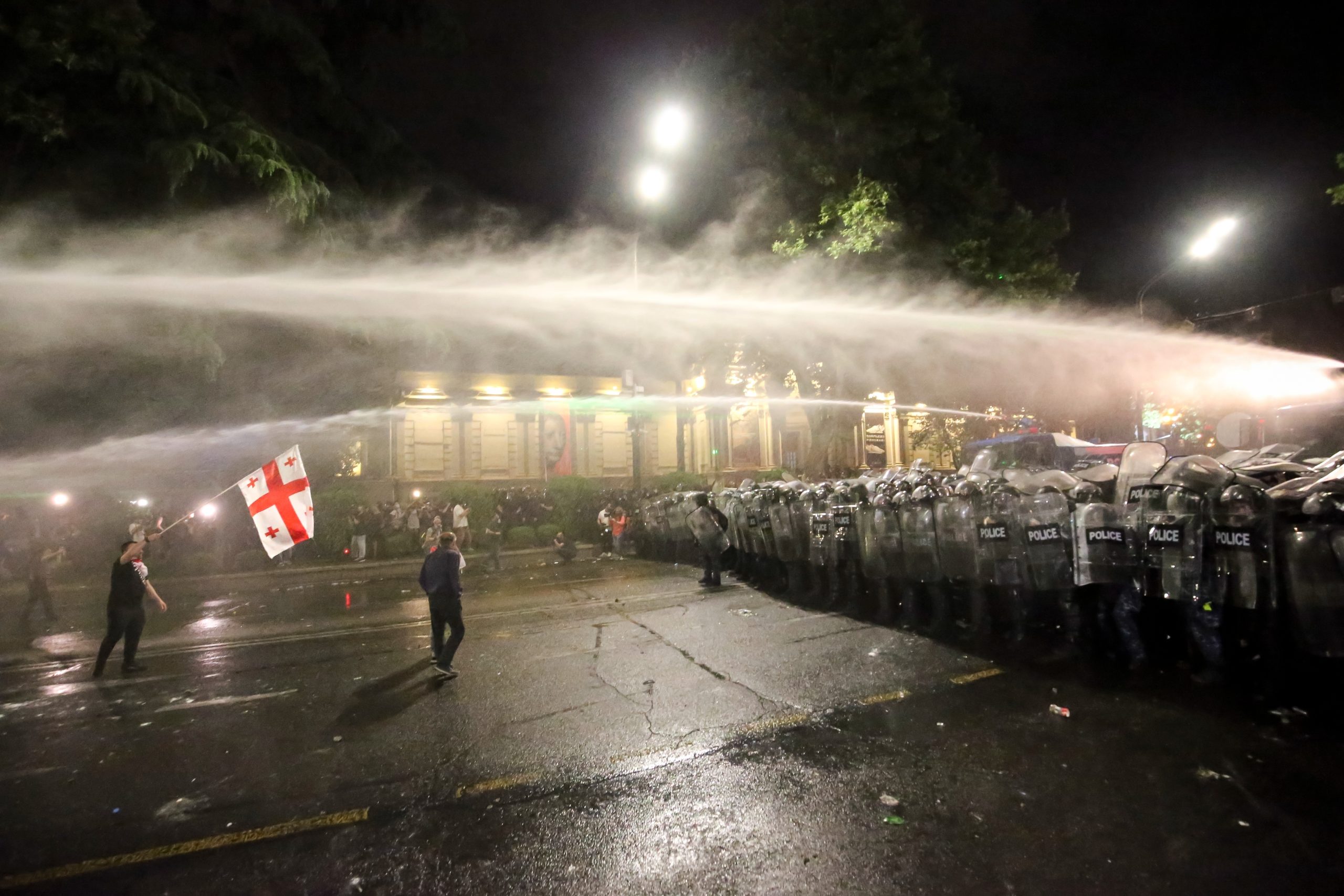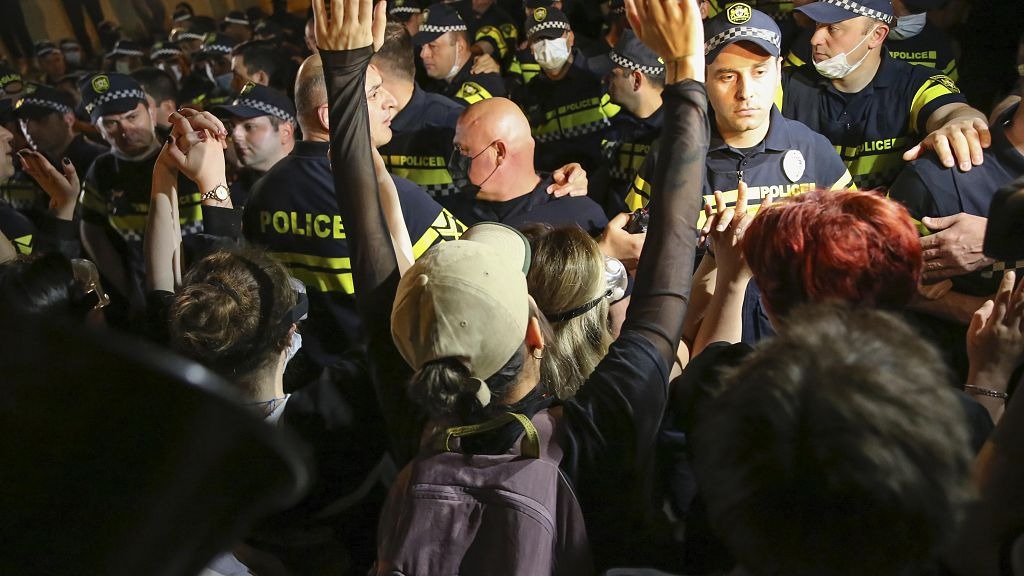Georgia has been rocked by widespread anti-government protests since April 9, triggered by the reintroduction of a controversial bill by the ruling Georgian Dream party. The proposed legislation, criticized as repressive by its opponents, has sparked outrage among demonstrators and drawn condemnation from international observers.
In a departure from previous demonstrations centered in Tbilisi, Thursday’s protests exposed in two distinct locations: the traditional site in front of parliament and Heroes Square, where a monument honoring Georgian soldiers stands.
Tensions escalated as police deployed tear gas and made several arrests after protesters blocked the main road leading to Heroes Square.

The rallying cry of “No to Russia!” echoed through the streets as demonstrators converged on the square, denouncing Georgia Dream MPs as “traitors” and demanding an end to what they perceive as government overreach.
Among the protesters, voices like Giorgi Loladze from Kutaisi emphasized the united front against what they see as a government at odds with the will of the Georgian people.
Criticism of the bill has reverberated beyond Georgia’s borders, with the European Union, United Nations, and United States expressing deep concerns. UN rights chief Volker Turk urged Georgia’s government to withdraw the bill, highlighting alarm over the reported use of excessive force by police against demonstrators.
The proposed legislation, which passed its second reading in parliament, mandates that independent NGOs and media outlets receiving over 20 percent of their funding from abroad register as “organizations pursuing the interests of a foreign power.” Last year, similar proposals were abandoned in the face of mass protests.

Georgian Dream has defended the bill as a measure to enhance transparency in NGO funding. However, critics view it as a threat to civil liberties and democratic values, fearing it could stifle dissent and curtail freedom of expression.
As tensions simmer and protests persist, Georgia finds itself at a crossroads, grappling with questions of democracy, governance, and the balance between security and individual rights. The outcome of this struggle will shape the country’s political landscape and its relationship with the international community for years to come.


